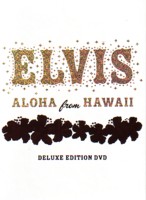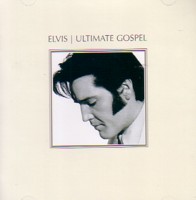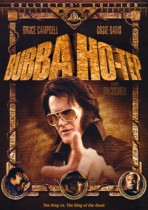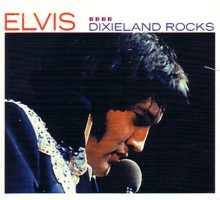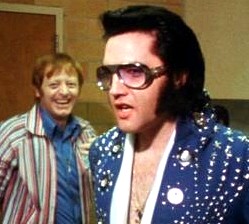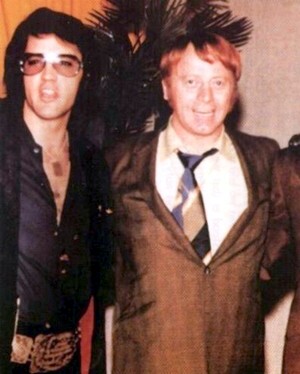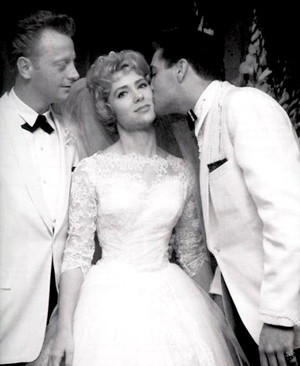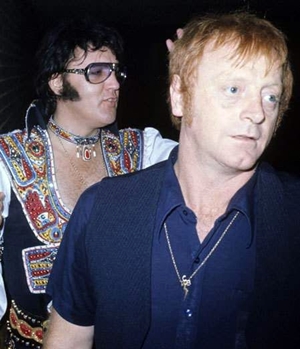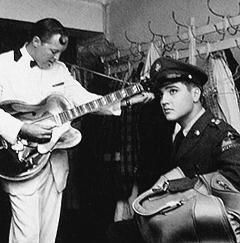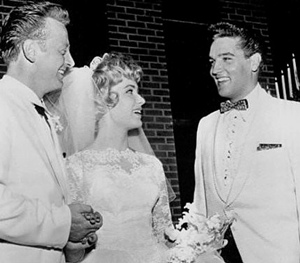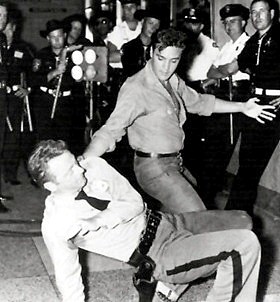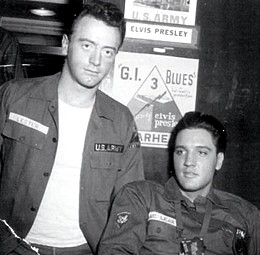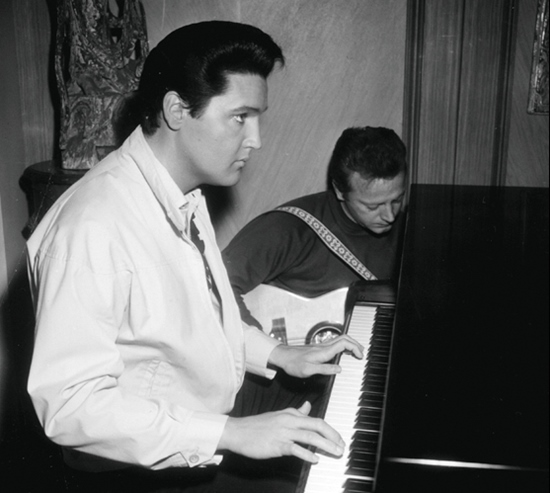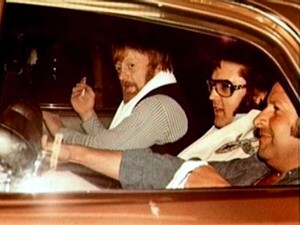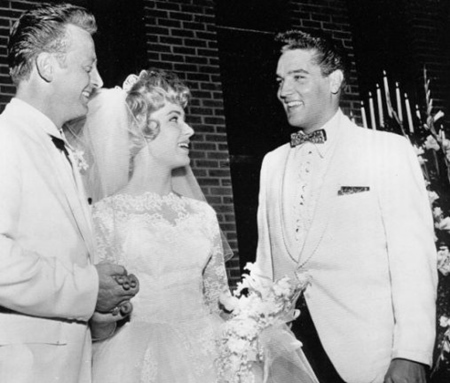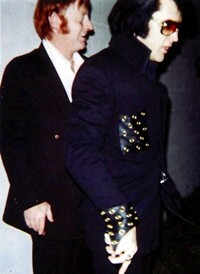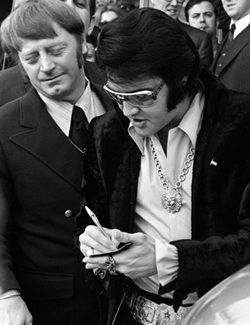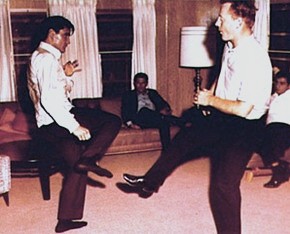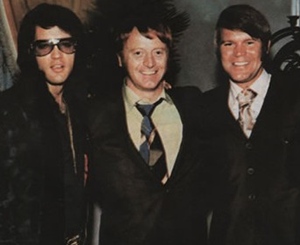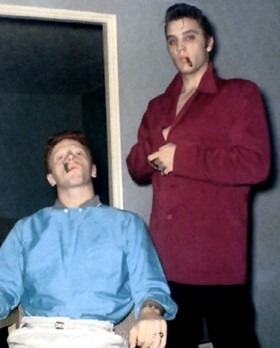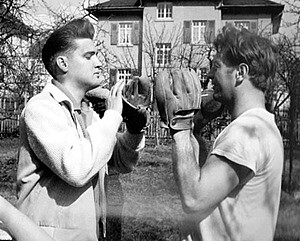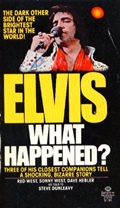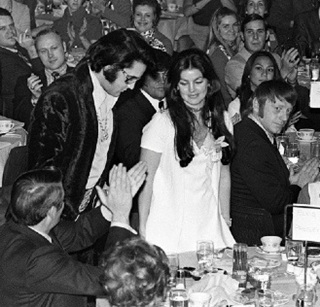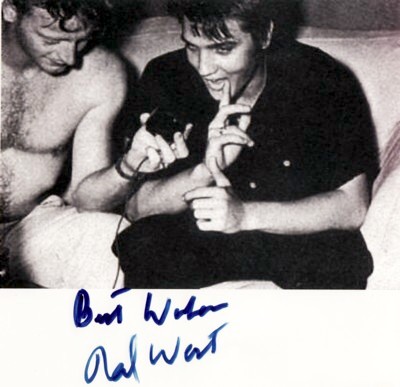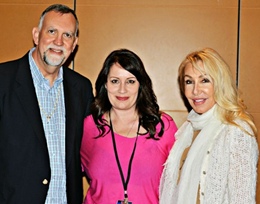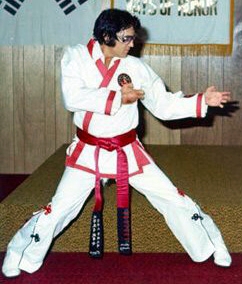 |
 |

Back in November 1999 Red West was the main guest at the Elvis English Fan Club Convention. Chaired by Todd Slaughter, President of the OEPFC, Red West opened up to all the fans like never before revealing his true love for Elvis and the fascinating story of their almost 30 years as friends. Over ten years go Lillian Cumming of The Elvis Touch Glasgow fan club provided a marvellous transcript of the interview, which EIN ran in one of our member-only Elvis fan club newsletters. After a recent suggestion from an EIN member we now present this fascinating interview for Elvis Week 2010. EIN thanks Lillian Cumming once again for her hard work in providing the transcript. Red West was born Robert Gene West in Memphis, Tennessee in 1936. Red became a good high-school friend of Elvis Presley and went on to become one of the key figures of Elvis’ "Memphis Mafia". Red West was a top athlete and served time as a U.S. Marine. Today he is probably best known to American film audiences for his role as Red in Road House, alongside Patrick Swayze. By 1955 Red West was already acting as a driver for Elvis and his band members as they toured the Southern states performing their early live concerts. In 1960 following Elvis’ army discharge Red West went to work for Elvis full-time primarily as a bodyguard. Red West is also a talented composer who wrote some very fine songs for Elvis (as well as others) including 'Separate Ways', 'That's Someone You'll Never Forget', 'If You Talk In Your Sleep' and 'If Every Day Was Like Christmas.' As an actor Red West appeared in sixteen Elvis movies and went on to feature in three Robert Conrad TV series 'The Wild Wild West' in 1965, 'Black Sheep Squadron' (1976) and 'The Duke'. Since Elvis’ death Red West has continued his work as an actor and stuntman and was recently in the very well received and award winning art-house film ‘Goodbye Solo.’ (EIN recommends that you track down a copy - look here - as it nicely showcases Red West's fine acting talents)
The 1999 interview was chaired by Todd Slaughter President of the OEPFC, with questions supplied by the British Elvis fans as well as questions from the audience. Todd Slaughter: Red West welcome to Britain and this fan club convention. Red West: It's great to be here. Let me tell you that one of Elvis’ greatest wishes was to do a European tour and to come to England. The closest he got to it was when we were in Germany. Bill Haley was appearing at some auditorium in Frankfurt and we went over, and we were standing backstage. Bill Haley was singing Rock Around the Clock.
Todd: Let’s go back to the early days. It’s said, as legend has it, that you rescued Elvis from being beaten up at Humes High when a group of boys wanted to cut his hair. What’s the real story, and was that what happened? Red West: That is the real story. The story is Elvis was always different. We had crew cuts, wore T-shirts and blue jeans, Elvis had the long duck-tail, the long sideburns and he wore the loud clothes and naturally he was a target for all the bullies. One day luckily I walked into the boys’ bathroom at Humes High School and 3 guys were going to cut his hair just, you know, to make themselves look big or make them feel big or whatever, and I intervened and stopped it, and I guess that stuck because a couple of years later after Elvis had his first record he came over and asked me if I would like to go with him, I think it was Grenada, Mississippi or somewhere, and I went and I was with him from then on. Except for the couple of years I was in the Marine Corps. Whatever, Elvis and I were great friends. Some things happened that... I want to dwell on the happier times at this get-together because they out-weigh the bad times. We had some good times, some great fun times, and in my opinion there’s nobody that will ever compare to Elvis. He was my good friend and I’ll always remember him as that. Todd: It must be very difficult to walk in the shadow of someone that is so loved, so adored, so worshipped. Was there ever a time when you felt, "I wish that could’ve been me", or were you happy to be in the shadow, so to speak? Red West: I wouldn’t trade places with him for the world! Anybody would think that they want what he had, the adoration and the money. I mean that’s what life is about, I imagine everybody here would like to reach that plateau, to have what he had - and so for me to say "No I wouldn’t trade places with him" - that’s a hard statement to make. Elvis had it all except he didn’t have the privacy he should’ve had, that’s the main thing that happened to Elvis. He was a prisoner of his own career. Todd: Was being a prisoner sort of counteractive to what Elvis could’ve actually done? Do you think he was too frightened, or was it instilled in him to be so protected and protective that he dared not go out into the general public? Red West: No, he tried. Even in Las Vegas where people like Frank Sinatra, many of the stars, Sammy Davis - they could go out and pretty well mingle. They could go down if they wanted to gamble or whatever. People didn’t bother them too much. But Elvis tried it once and the whole casino... everybody stopped playing and came around just to watch and see what he was doing! So he could not get out and do what most people do, and everything had to be at night. I mean he would rent movies at night because he couldn’t go to a regular movie, but still the gate was always crowded with fans and they would follow and they would be at the movie when it was over, and it was constant. We were always trying to find different ways to go places but he didn’t want to hurt anybody’s feelings, but he did wish he had a little more privacy. Todd: Working in an environment where you’re obviously expected to be "the great protector", were you personally always on edge that something untoward might happen? Red West: I guess so because you never knew what might happen. Even back in the early days we had our problems. Later on it got to be a real problem because the threat became bigger. You know what happened to John Lennon in 1980? Well this could have happened to Elvis much earlier. In fact there were threats. We tried to keep it under wraps because of the people out there, the copycats, that would do it. We were getting threats in the later years, we took them all seriously. Everybody was on edge. In fact, one night in Las Vegas, we got one before he went on stage and even the management said you don’t have to go on stage tonight because this looks real, and Elvis said, "Well, I’m not going to stop a show because of some so-and-so making threats". But we kept the lights up in the audience more, the curtains closer, my cousin Sonny and I were a lot closer. And then there was one of the strangest feelings I’ve ever had because when he did his last song there was a noise from the audience and Elvis went down into a very low karate stance to make him like a small target, and Sonny and I came rushing out and stood in front of him, and we're standing there waiting for whatever was coming. That is a strange feeling but that’s what we were going through toward the end, so a lot of things were happening that people don’t know about. Todd: Were you frightened? Was Elvis frightened? Red West: Yes, but Elvis still did the show. He said I’m not going to be bullied by some idiot like that. You know we were watching every move, everything that moved in the audience, and sometimes we over-reacted on other occasions maybe, but I’d rather I over-reacted than not be there on time. We saw what happened to people when they weren't prepared or not thinking things could happen, so we were always ready as we could be.
Todd: In the early days, did Elvis Presley mix with lots of other stars, or did he tend to keep apart? Red West: No, when he was doing the early tours with the Browns, Hank Snow and when he did the Louisiana Hayride, Johnny Horton and so on he socialised with them. We have a nice picture at home. The Browns, they were a country group, brothers and sisters. They had a hit called "Little Jimmy Brown" and we have a picture at home of them celebrating their father and mother’s wedding anniversary and around the table was Hank Snow, Junior, Floyd Cramer, this was a whole musical group. He hung out with them then. Later on, it was different, but when he first started out he liked to hang out with those guys - Jimmy Horton and those guys. We’d go out to dinner after the show - but later on Elvis kinda' stayed by himself. And with George Jones that’s a funny story! Elvis had had 3 hit records. He was doing the Louisiana Hayride and George Jones went on right before him and George Jones, who was probably put up to it by Johnny Horton and the rest of the old-timers, he did all 3 of Elvis’s hits. We’re standing backstage watching this and George came off, said "I’m sorry, I haven’t had a hit in a long time" and he walked off. Elvis went out and sung 3 gospel songs, came off and said, "Let’s get the hell out of here". That was funny! Not at the time, but later on we laughed about it.
Todd: Do you think that you personally wouldn’t have gotten into the movie industry had it not been for knowing Elvis Presley, being associated with Elvis, or was that a way in your life that you personally wanted to go? Red West: That’s what I always wanted to do, but no, I would never have made it without knowing him because the people I met with him were the ones who helped me get into it when I came back early from Germany and went directly to Hollywood. It’s what I always wanted to do but knowing him opened doors that would never have been open, so Nick Adams did a series called "The Rebel". He was a friend of Elvis’ and I went to Hollywood and met him. He helped me get into the first door and then Robert Conrad who did "Hawaiian Eye" and "Wild Wild West", we played football every Sunday when Elvis got back and all those people would come out, like Pat Boone. I met these people and ended up working with them so, no, everything I got I owe to Elvis. Todd: That really is a statement to make isn’t it. Red West: Yeah, it was real. It’s true. Todd: Did you have to have any drama coaching of any kind, or did it come naturally? Red West: No, I studied acting with a guy who’s still around, Jeff Corey, an old character actor. And Robert Blake I think studied with him, Jack Nicholson studied with him. No you don’t just go out and start acting. Elvis could have been, I think, a tremendous actor if he had had the chance to study first instead of being thrown right into it. Anybody who wants to be an actor, you study acting first. You don’t just step in front of a camera, you’ll forget your name which I did!
Elvis just kinda' breezed through the others to get them out of the way because there was nothing to them as far as he was concerned. I mean, Wild in the Country was some of the best acting without a doubt he ever did, and the one in New Orleans - King Creole - those were two. King Creole was written for James Dean and they changed the name, of course James Dean was killed and Elvis got the part. But that was a heavy, dramatic acting part for him and I think he did it very well, but then he lost interest as the movies went by. Todd: I guess when the British invasion first started to penetrate the charts in the States, Elvis and you all must have taken a step back and said to yourselves what’s happening here, we need to reassert our place in the market. Red West: No, Elvis always said there’s room for everybody. He was never threatened, in fact when he had his home in Bel Air, and I guess everybody knows about when the Beatles came to his house. It was one of the best, fun times we ever had. We just sat around. Ringo, myself and my cousin played pool. Ringo was kind of a loner, the rest of them and Elvis sat and chit-chatted all night and had a ball. The only thing, when he was in the Army, he felt like his hands were tied and everybody was doing their thing when he was in the Army but he said I’ve got this to do, and then I hope they’ll remember me when I get out, but he never wished anybody any bad luck or anything like that. Maybe you’ve heard he did, but don’t believe it. Todd: I guess when Elvis was in the movie studios, your duties of being a protector, looking over your shoulder, were less of a problem compared with when Elvis went back into live entertainment. Red West: For the tours and the personal appearances we were on guard, but in the movies, we were doing the movies with him. I was in every fight scene, either doubling him or fighting with him or doubling for somebody else. That was fun, we didn’t worry about anything then, maybe to and from the studio, but not too much. We were all involved in the movies and having a ball.
Todd: Did Elvis get up to anything - like do something to escape the pressure where no-one would see you? What about the Malibu fishing trip? Red West: I don’t really know how to answer that. He did have a crap table in his house that people weren’t supposed to know about that we shot craps and gambled a little bit. No, there was nothing really unusual. The only time we went fishing was early in his career. He used to love going to Biloxi, Mississippi. We went out on this boat - his cousins, his girlfriend and whatever, and that was fun. We fished, I remember I caught a shark, he caught a bunch of these benita, whatever. But that was in the early days, that was the mid fifties. Todd: There’s some charming film footage of Elvis going to Catalina island. Did you accompany him when he did that? Red West: No. I think I was in the Marine Corps then. That had to be in 56/57 when he was doing his first movie. I miss that, I miss those days because his first time in Hollywood had to be an experience- his cousin Gene was with him. I wished I could have seen that, but I’d gone into the Marine Corps. Todd: Did you feel you missed out by not being there? Red West: No, I think things worked out the way they were supposed to for me. Yeah, I missed that initial changeover from Memphis to movies, I missed the first two, and I wish I could’ve been there because I’ve seen pictures. That was really some crazy times for Elvis because he was young and all this thrown at him, and he handled it pretty well, but I heard there were some pretty wild times in those first couple of movies.
We had a certain little game we would play to break the boredom. We’d drive along the countryside, we’d be going over a bridge. We had this little thing where somebody was talking about something they thought was really important, you’d tap them on the head, they were supposed to like change the channel, go to completely something different. You’d say, "I thought the thing we did ...", you’d tap his head, Elvis’d say "Oh, to hell with it ..", take his shoes off and throw them out the window into the river!! Things like that, stupid little things just to break the monotony, but they were fun, they were crazy. Elvis' bass player Bill Black was one of the craziest guys I ever met. We had some good times on the road in those early days and they far overshadow the bad times, although the bad times were bad, but we had too many good times to dwell on that. It’s just something that happened....
Happier times, Red West's wedding July 1, 1961
Todd: What about these bad times? Red West: Well now we’re talking about it, like me I’m dying for a cigarette right now!!! I have a brother who’s addicted to gambling. I might as well get into this Elvis drugs issue now and tell you. People have come up to me and said, "Why the hell didn’t you do something to stop it". They don’t know that I did try. They didn’t know I got fired because I tried. But his step-brothers and a member of one of the singing groups were bringing these things to him. When I found out about it I kicked the door in, I stomped the guy’s foot and broke his foot, and said "You keep bringing this stuff to Elvis and I’m just gonna work my way up". Elvis of course found out about it and I was gone. I’d been with him since junior high school, but the drugs took over in the end and I can understand it in a way because he had no privacy, he was bored with his life. Something that sticks out in my mind from when I told you about breaking in the door and stomping on the guy’s foot. Well when that story did get to Elvis he called me in, he said "I want you to leave these people alone. I need this". I said "You need this?". He said "I need this". I said, "Well, you went a lot of years without it", and then he said "But now I need it." Then when we got back off the road he went to Las Vegas and his dad called me, took Sonny and Dave Hebler in and said "We’re cutting back on expenses and I’m afraid you guys are gonna have to go". Let me go through the whole thing here. Elvis started out great doing personal appearances, then he went into the movies, the movies got to be a drag because of what we’ve been talking about - the songs were terrible, the scripts were terrible. So he went to Vegas and instead of working maybe 5 nights a week and 2 nights off or 6 nights and 1 night off for a couple of weeks, like Frank Sinatra and everybody else did, he worked for 4 weeks for 7 nights a week, 2 shows a night! The Colonel was downstairs gambling enjoying himself. So Vegas got to be routine and Elvis said "OK I want to go back on the road, I want out of this. The movies got to be a drag, this is getting to be a drag, I want to get back in front of the audience around the country, the world". But the Colonel started booking him into the same towns. Each tour we’d hit Roanoke, Virginia, we’d hit so-and so and so-and-so, Atlanta, Georgia. He wanted to come here to Britain. He wanted to go to Australia, he wanted to go to Germany, he wanted to go anywhere but Roanoke, Virginia and Atlanta, Georgia, but no, - and why the Colonel do that? I asked the Colonel why can’t we tour Europe. Why can’t we go to Australia. "Can’t handle security, can’t handle security" he replied. Of course at the time we didn’t know he was an illegal alien and he could not go outside the US. (See EIN Spotlight on The Dark side of Colonel Parker) I wondered why he never came to Germany while we were there. He always sent other people there. He never left the USA, once he got there he never left, and that hurt Elvis. If Elvis could have gotten out and seen you people and entertained you and everybody else, it could’ve been different, but he was a prisoner of his own success and let’s just say the Colonel got him where he was, but he also put him where he is. Todd: Do you think, if there had been at that time a Betty Ford clinic, do you Elvis would have voluntarily taken part in that, or did he feel that what was going on wasn’t a problem? Red West: I don’t think he ever knew it was a problem, but at the end he always had Dr Nick with him or a nurse or whatever. I think he thought if anything happened they would get to him in time or something. We thought about that many times, if there were a Betty Ford clinic, but even when he would go into the hospital which he did quite a few times at the end, I would say "what do you think’s causing this", he’d say just a problem with his stomach. I’d say, what do you think’s causing this you don’t think it’s because of the things you’re taking? Red West: No he didn’t, that’s one he missed. He did want to meet Marilyn Monroe but she was busy. It never happened.
Todd: This is a poignant question, everybody looks back at their life. Is there anything that you think, "if only" in connection with Elvis? Red West: Of course. There’s always that question "if only" - then I guess you think back. I did as much as I could at the end, but you know there’s a lot of things I can’t put my finger on, but I’m sure there’s a lot of things I would say if only this ., things could’ve been different, I don’t know anything else we could have done at the end. We did all we could.
Another thing on that same set, Charlie Hodge - somebody had thrown water on him. He took his shirt off, they had a big fan there for circulation, a big floor fan. He hung his shirt on this fan to dry out, then walked away and got another shirt, but every once in a while he’d come back to check if it was dry - but it always stayed wet which he couldn't understand. Of course while he was gone we just poured more water on it! All day! When we were doing King Creole, Alan Fortas was always pulling jokes on everybody else, so we got him with one. We said, "Alan, you gonna do a line today, you’re gonna be an actor", go to make-up. So he went to make-up, they made him up, they put the make-up on, they put this little tissue on his shirt so he wouldn’t get make-up on his shirt. We said "You sit here, and don’t take that tissue out or you’ll mess your shirt up". So he sat there all morning, we gave him some line, made sure he had this line memorised, so he sat there doing this line with this tissue on his shirt. Lunch came, we’re getting close, we’re going to break for lunch now. After lunch I think that might be the first shot. And after lunch they always touched up your make-up because you might have gotten some chicken grease on your mouth or whatever. So, they retouched his make-up, said keep the kleenex in, he sat there all afternoon doing his line, waiting on his little line. At the end of the day, the first assistant came over and said "Alan, we’ve run out of time, we’re gonna have to do this tomorrow". You guy’s been putting me on he said, and everybody had a good laugh at that! We were always doing things like that. Todd: Here’s an interesting question which, as a father, you’ll know yourself. Was Elvis a good dad, and did he ever change a diaper? Red West: Never. No way would he ever change a diaper! He would have made a mess of it. That was not one of his things that he could do well. Todd: You are obviously a very powerful man, I can tell that because about 10 minutes ago when you tapped me on the head I think you broke my skull! You are a very strong man, and I wanted to tell you a very funny story as well. In 1972 we took a group of fans to the States, it was to see Elvis Presley in concert in Las Vegas. We had a fabulous time, it was marvellous, it was real good fun! The Colonel was very hospitable to everybody, we got good seats at the showroom. I guess the mistake we really made was that the second year we decided to go back again. The Las Vegas Hilton wasn’t that tolerant this time because here was 250 people from Britain who, on the whole, had no intention whatsoever of gambling in the Hilton, but they did want to see Elvis and everybody had got reservations. At a stroke those reservations were cancelled, every single one of them, and we couldn’t get in to the Hilton. We could get in, but we couldn’t get into the showroom. Red West: Yes. I think I remember this! What happened, why were you not given the tickets, I mean after coming all that way to see him, was there a mix-up at the Hilton? Todd: There was no mix-up at the Hilton, everybody had got their reservation forms but somebody - whether there been a change of casino management at the Hilton - but someone had decided that the people that should be sitting in the casino seats should be the high rollers. Red West: Yeah there was a few of the boys in Vegas! I apologise to you. (Red introduces his wife in the audience). This is a story. She was in the booth, in the middle and when Elvis was there they had the tables right up to the stage, long tables. Elvis had put on a pretty good show that night. The curtains were closing, I’m coming out, Sonny’s coming out, walking with the curtains. This girl with a mini skirt is running down this table toward Elvis. I saw her and, just as the curtains closed, she hit me in the back, Elvis of course stepped back and laughed and walked on, but she was trying to get through so I reached, I reach and I got my arms around her, and I hear this applause and these whistles. Everybody’s having a ball out there and I’m wondering what’s going on. My wife told me when she got backstage that when I grabbed her, I was holding her through the curtains, had my arm around her to keep her from coming through, well her skirt went up and there was nothing underneath! And all these guys shouting, "Hold on Red!" Another time one girl was running down the tables, fell on some guy’s lap and her wig flipped off. Never slowed, she got up with these little pincurls and kept coming!! I don’t know if you’ve heard Elvis’ live song (Are You Lonesome Tonight), well this guy sitting down here with a toupee on and some girl was trying to get to Elvis and knocked the toupee off and Elvis is singing "...... and your bald head .." he just fell about, if you heard that recording that’s what that was about, he was singing live and the guy got his toupee knocked off and he couldn’t sing the rest of the song, and the voices over here never missed a lick, they just kept it going like they were supposed to and he just, "... and your bald head ...". Well that’s where that came from. Todd: There is of course that famous story about you all going into the showroom of the Hilton and painting the cherubs black. Now everybody knows the story, but the question I would like to know is where did you get the paint, because paint shops in Las Vegas aren’t that easy to come by? Red West: The back of the stage had this very tall mesh wire thing. Behind that was all the stuff for the stage, paint, whatever. So we were backstage after the show was over, the showroom was empty and Elvis said, " I want to paint those black". So I took my shoes off and I climbed over, and this thing had to be 20 feet tall! I went over, down the other side, got the paint, hooked it on to my belt, came back over, put my shoes on and we went and painted them black. And the next night nobody seemed to notice it, and he said "I want you to notice what we done last night to change the showroom and to acknowledge my back-up group, the Sweet Inspirations. Everything is white. No longer, look". The spotlight went over to these black faces and the Sweet Inspirations were falling about! That’s how that came about.
Todd: Had Elvis Presley lived, and I guess you knew him as well as anybody knew Elvis Presley, what do you think at the grand old age of 65 he would be doing now? Red West: He would be doing the same thing he was doing then. If you notice, I know I have, after Elvis died the music seemed to change. It’s not like it was then, it went to country in the US after that, course you can’t call it all country now, but Elvis would still be doing Hound Dog and things like that, still doing the same thing. Hopefully we’d have made some changes, but he’d still be doing it. He wouldn’t have changed his music. Todd: Did he want ever to change his music? He never thought that he wanted to become more of a gospel act? Red West: No, we were in the audience watching Bobby Darin once. Bobby Darin, if you’re familiar with Bobby Darin, started out with "Splish Splash" then he got into Frank Sinatra, started sounding a lot like Frank Sinatra. We were in the audience one night and he did Splish Splash, stopped in the middle of it, and said that was another time, then he started on one of his later hits that sounded like Frank Sinatra. Elvis yelled out, "Don’t knock what got you there". And he stopped, he knew who it was, and he said "You know what, you’re right" and that’s what he felt, you know, that Bobby Darin made the changeover from Splish Splash to Frank Sinatra type songs. Elvis was so embarrassed when he did that show with Frank Sinatra after he got out the Army. He was singing one of Frank Sinatra’s songs and Frank Sinatra was singing one of his. That was the most horrific, embarrassed he ever became because that was not his type of song.
We were talking earlier about him socialising with people. He did. He would always invite Tom Jones over and the quartet was always up there, and after doing a show for an hour and a half or whatever he would go upstairs and Tom Jones would come over and Elvis and the group would sing. Tom Jones maybe joined in a couple of times but Andy Williams, people like that, he liked to invite them over and stay up, so that’s what we did after the show. Elvis was always singing, he loved to have the gospel quartet up there and the Sweet Inspirations and they would sing gospel songs, whatever, and just have a good time. Todd: Were there lots of girls? Red West: There was hundreds of girls, in fact my wife one time was there and I took her up to see him. I mean, that’s what he wanted. He wanted an audience of just people to talk, he had his religious quotes and he liked to talk to all these people. Of course he would be looking through the crowd and seeing how they look, but that was the norm after the show to unwind, he wanted a lot of people up in the suite and there always were a lot of people up there.
Todd: Is it true Elvis carried a gun everywhere and have you any stories to tell about that? Red West: Yes. We all did. After we’d all been deputised in Denver, in Las Vegas and Memphis. We had security investigations of our past. We were all armed and dangerous. Todd: Was that detrimental do you think to Elvis’ psyche at the time? Do you think those people should not have done what they did? Red West: These things should never have been brought to him because the people who brought them were strange, and still are, and it got him off onto another thing. He was looking for something and he thought this was it. Todd: Do you still now, today, see those people, Linda, Ginger and so forth. Red West: No, we visited Linda, my wife and I and some of the group, we were in California. We went out to visit her. Linda’s nice, you know, she’s OK. She did the best she could but the group is split now. I was the first guy, the Memphis Mafia is what they started calling us. I was the first guy, then came Lamar, Sonny, Marty and Billy. Billy was always there, Billy was like our younger brother but he was not involved in all the road stuff as much as we were until he got older. But then he had the other group, we kinda separated, things happened, but we don’t get along well. Todd: What was Elvis’s mother like? Red West: His mother was an angel. He loved his mother, she loved him, she worried herself sick about him, she didn’t take any crap off anybody and she was a very strong-willed woman and I miss her. The last time I saw her I was in the Marine Corps. I was home on leave. Elvis was making King Creole and I went by Graceland to see her and Vernon and they called Elvis. They said Elvis wants you to fly out and then ride the train back to New Orleans. Elvis wouldn’t fly in those days and they were finishing up in Hollywood, and then we got a ride in the train to New Orleans. I had a week’s furlough and the last thing his mother said to me was, "You take care of Elvis", and I took that seriously for the rest of my life. Red West: Elvis was wondering, after all the movies, he was a little unsure of himself and that’s exactly what that was for, to see if he still had it. The thing the Colonel had for him would have destroyed him. He wanted him to come out and do a bunch of Christmas songs! And Elvis said to hell with that, I’m doing this, so that was his "testing the waters".
Todd: When you wrote the book discrediting Elvis and he died a few weeks later, did you feel any responsibility for his death? Red West: No, I did not feel any responsibility because Elvis was dead once before but we found him just in time. I knew it was coming and that was one of the main reasons I wrote the book because, like I said earlier, I tried to stop what was going on while I was with him and that didn’t work. So we wrote this book to just put right in his face what was going on and it still didn’t do any good, but it was a coincidence, I grant you that, but I know what kind of shape he was in.
Red West: I agree with you myself but I was broke. No, I wrote it for money. Is that what you want to hear? I wrote it for money and to try to help him. You’re gonna dwell on this goddam thing? I’m sorry you feel that way but I loved the man very much. You don’t know what I went through trying to keep him away from this. Yes, you got your opinion about me writing the book. OK, I’ve told you my side of it and you can’t accept that, then I’m sorry, but yeah I wrote the book to try to save him and I wrote it to make money. Todd: When was the last time you spoke to Elvis and was it on good terms? Red West: Last time I spoke to Elvis was when he called me, when he knew the book was being written. In fact that conversation was in the book, and he called me to see how I was doing. I think he was a little nervous about what was in the book. We had a long conversation. That was the last time I spoke to him. Todd: Could you have done it differently? Red West: Yeah, I could’ve lied a lot - but everything in that book is the truth. I don’t know if you read the book, but did anybody see the good things in that book? 90 percent of that book was the positive things but you’ve got to cover it all. One thing about these other books, they’re a bunch of bullshit! Todd: Where were you when Elvis died? Red West: I was in the middle of an episode of "Black Sheep Squadron" called the 200 Pound Gorilla. It was about me, I was filming with Robert Conrad and the stunt coordinator - we were rehearsing a scene, it was early in the morning, and Chuck came running in and said "Man I think I just heard something on the radio about Elvis dying". Well, Robert Conrad had become friends with Elvis, and we talked many times about what had transpired. It’s the only time I know of a show shutting down. Nothing shuts down a movie or TV show, "the show must go on" you know, well that show shut down that day. My wife and my two sons came over crying, and we weren’t worth a damn the rest of that day or the rest of that episode, but I remember it well.
But anyway, down in the dressing room after the show we got the Stamps and said, "Hey fellas, now this is serious, we got another threat tonight so I want you to take the elevator, go up to the 30th floor, get out of the elevator, walk through a hall into the suite". So, all the way there, Sonny and I are priming these guys, "Man, be on your toes for this sound". Bad. They were nervous wrecks all along the way to the elevator, we went upstairs, we went into the suite and there was a way around to the front of the suite and there was a way around to the back through the dining-room, down into the living-room. I went in with them, closed the door, Sonny fell back and went around the other side. As soon as we got in the suite I said, "OK, looks like we’re OK". Then all of a sudden Sonny shouted "Son of a bitch", boom ... we put blanks in our pistols. JD Sumner knocked Elvis down and laid on top of him, Donnie Sumner jumped over the bar, hit his knee on the top of the bar and almost broke his legs. He was hiding behind the bar. I went running up these three steps, fired a couple of shots, Sonny fired a shot. I grabbed my stomach and said, "Oh, I’m hit" and I fell down these steps. All the guards that followed had been shot, all these shots going off, all these guards were "dead". One of the Stamps was underneath the table, he was very religious and he was praying! And the other one, the wild man of the group says "Give me a gun, give me a gun". He went over and actually grabbed one of these dead guard’s guns. "The son of a bitch is empty". By that time, Sonny stuck his arm around Elvis (who was still on the floor with JD Sumner on top of him) and all Donnie Sumner could see from behind this bar was this hand with a gun. He picked up a big tomato juice can and threw it, it missed Sonny’s hand and Sonny turned around and he said "Son of a ….. " and fell about (laughing). That’s the sort of things we did to amuse ourselves. Todd: Thanks for all the great stories. Red West: I just want to tell you how thrilled I am to be here with you and share these things with you. I’d hoped we could keep it on an upbeat thing because that’s the way he would have liked it and I’m sorry that you never got to see this man in person.
Interview by Elvis English Fan Club Convention 1999 - EIN presentation by Piers Beagley. Click to comment on this interview.
EIN Website content © Copyright the Elvis Information Network.
Elvis Presley, Elvis and Graceland are trademarks of Elvis Presley Enterprises. The Elvis Information Network has been running since 1986 and is an EPE officially recognised Elvis fan club.
|
|
